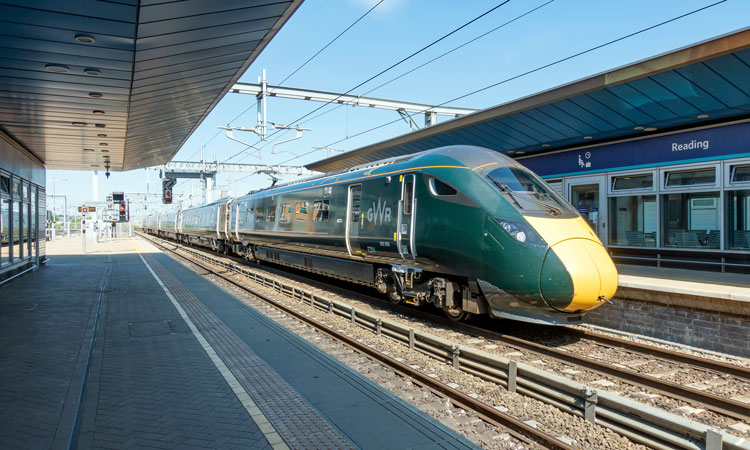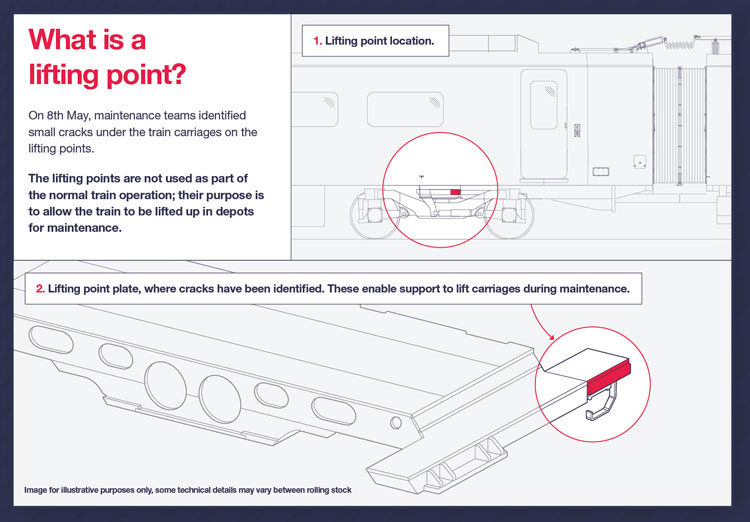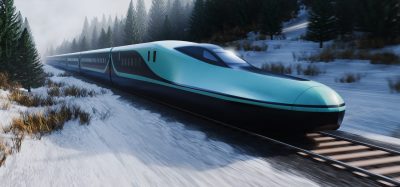UK rail industry and Hitachi Rail agree service recovery plan
Posted: 13 May 2021 | Global Railway Review | No comments yet
With oversight from the UK’s Office of Rail and Road, Hitachi Rail, train operators and the government have agreed a service recovery plan to safely reintroduce more Class 800 Series and 385 Series trainsets into passenger service after cracks were found on some trains.


A service recovery plan has been announced that will allow for the phased reintroduction of more Class 800 Series and 385 Series Hitachi Rail trains, following the removal of some trains from service on 8 May 2021 as a precaution when cracks were found on the lifting points under some train carriages.
Following initial extensive safety checks on their trains, TransPennine Express (TPE), Hull Trains and ScotRail have already been able to operate services across all of their routes. But, after further rigorous safety checks involving the Office of Rail and Road’s (ORR) HM Railway Inspectorate, Great Western Railway (GWR) and London North Eastern Railway (LNER) will now begin reintroducing trains with a more regular service for passengers.
Service recovery plan
The service recovery plan follows joint work between Hitachi Rail, train operators and the regulator around the safe return to service of some trains. Since discovering the faults, Hitachi Rail engineers and independent experts have completed rigorous tests and research to gain a clearer understanding of the cracking issue.
Based on the work undertaken to understand the issue, and after extensive engagement, Hitachi Rail and train operators, working with the rail regulator, have put in place suitable criteria for the trains to meet before they can re-enter service.
The service recovery plan includes thorough inspections by specialist teams before trains leave the depot. Trains will only re-enter service if they meet agreed safety criteria. Working with Hitachi Rail, the rail regulator will continue to carry out rigorous oversight to ensure robust processes are being followed.
Over time, trains will be subject to a Forward Repair Plan, which will ensure the long-term continued safe running of the fleet.
Andrew Barr, Group CEO of Hitachi Rail, said: “Today’s agreement sets out our joint plan for the phased reintroduction of our trains into service, which will continue to deliver the highest possible safety standards. Safety remains our number one priority, and we and our partners have worked round the clock to agree an approach that allows the return of trains to service where they have been deemed safe.”
“With our service recovery plan now underway, the operators will begin reintroduction of trains as they are individually approved and deemed safe. We would like to thank our partners for their ongoing support as we work collectively to reintroduce more trains into service,” he added.
Robert Nisbet, Director of Nations and Regions at the Rail Delivery Group (RDG), said: “The safety of passengers has been the absolute focus for each of the organisations involved in making decisions about these trains over recent days. After some incredibly hard and detailed work, Hitachi’s engineers have worked with train operators and the rail regulator to safely bring some trains back into service. Over the coming days, we will be able to get passengers on the affected routes moving again. But, for now, passengers should continue to check before they travel.”
Ian Prosser CBE, HM Chief Inspector of Railways at the ORR, said: “We’ve engaged with Hitachi and the train companies to oversee their development of a safe and suitable plan. We’re also continuing to provide the rigorous oversight needed to make sure that the right checks are being carried out so that the trains are able to re-enter passenger service safely.”


Credit: Hitachi Rail
Mark Hopwood, GWR’s Managing Director, said: “Our customers have shown great patience over the past couple of days, and I am grateful for their understanding as we have worked with Hitachi to allow trains to return safely. This news will allow us to run some additional services today and reintroduce more consistent and robust timetables for customers after the weekend.”
“The industry has come together to help to support those travelling – with other operators allowing each other’s tickets to be used on their networks; adding in extra shuttle services to help move people; and in sharing rolling stock to provide it to those who need it most,” he added.
David Horne, Managing Director of LNER, said: “I am pleased that we have been able to work as an industry to agree a service recovery plan with Hitachi and industry partners that will allow trains to return safely to our route.”
Related topics
Passenger Experience/Satisfaction, Regulation & Legislation, Rolling Stock Maintenance, Safety
Related organisations
Great Western Railway (GWR), Hitachi Rail, Hull Trains, London North Eastern Railway (LNER), Office of Rail and Road (ORR), Rail Delivery Group (RDG), ScotRail, TransPennine Express (TPE)
Related regions
Related people
Andrew Barr, David Horne, Ian Prosser, Mark Hopwood, Robert Nisbet








